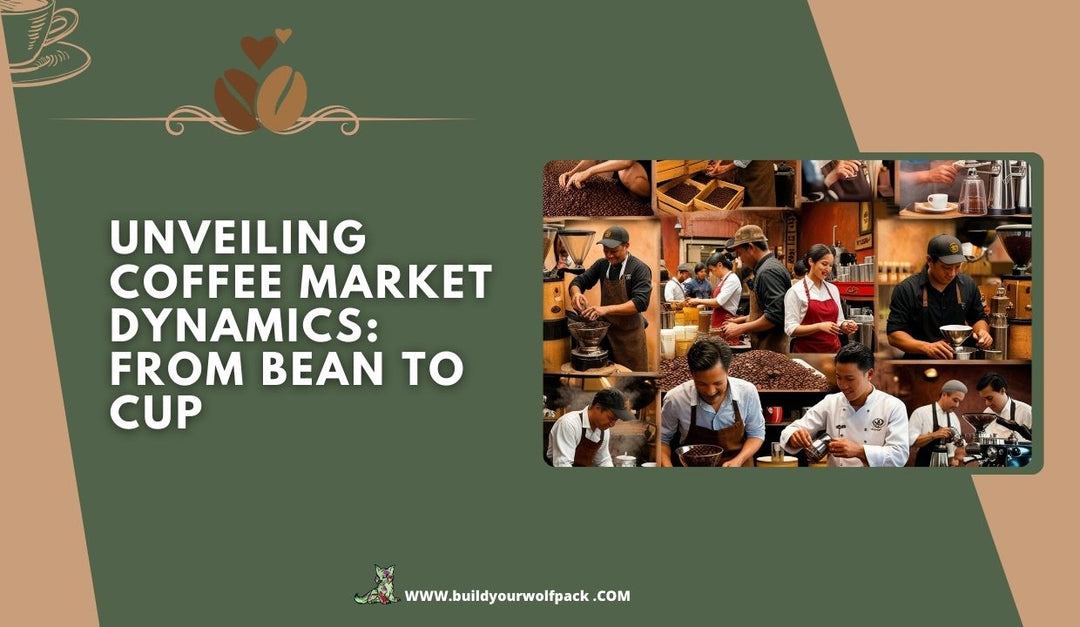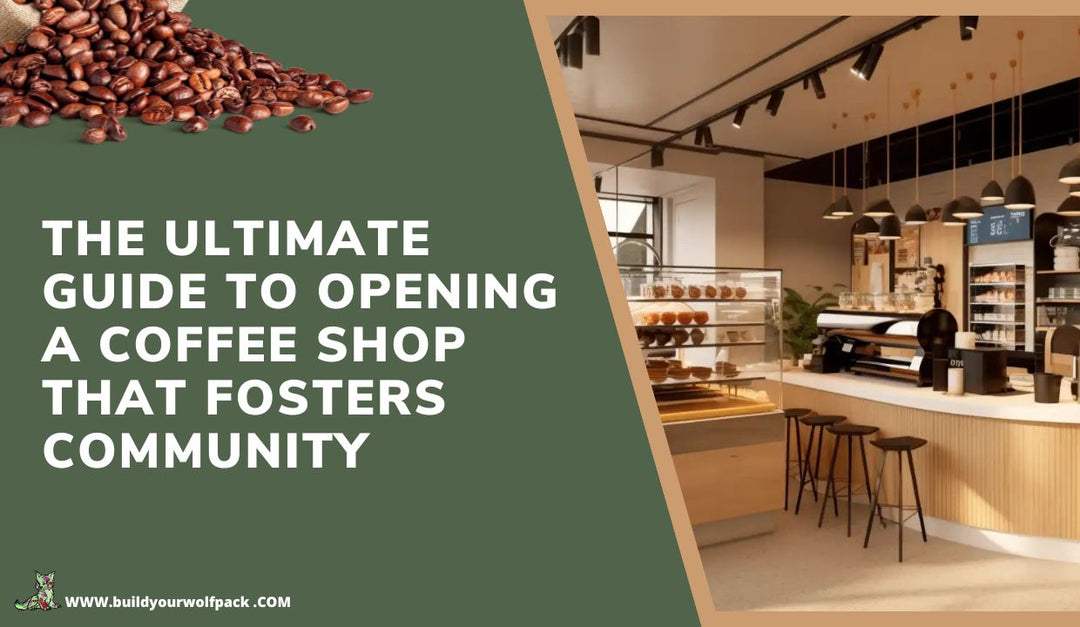The Power of Coffee in Building a Thriving Community

Coffee, for many, is more than just a morning pick-me-up; it is an essential part of daily life, a ritual that brings people together. Whether it is the comforting aroma of freshly brewed beans or the familiar warmth of a café, coffee has long been a catalyst for connection. But beyond its energizing qualities, coffee has the unique ability to build and nurture thriving communities. From the farmers who grow the beans to the local cafés that serve it, coffee fosters relationships, creates spaces for engagement, and strengthens bonds between people.
In this script, we will explore how coffee transcends its role as a beverage and becomes a tool for building connections. We will dive into the various ways coffee helps create a sense of belonging, fosters collaboration, and supports local economies, making it a powerful force in developing thriving communities.
The Universal Language of Coffee
One of the most remarkable things about coffee is its universal appeal. People from all walks of life, across cultures and borders, share a love for coffee. This shared passion makes coffee shops and cafés unique spaces where individuals, regardless of background, can come together.
Consider a bustling café in the heart of a city. It is not uncommon to find a diverse crowd—students working on projects, professionals meeting for business, friends catching up, and solo patrons enjoying a moment of peace. What binds these individuals is the simple act of enjoying a cup of coffee. The café becomes more than a place to consume beverages; it becomes a hub of social interaction where conversations flow freely, ideas are exchanged, and connections are made.
This sense of unity is key to building a thriving community. Coffee creates an atmosphere of inclusivity, where everyone is welcome, and people feel a sense of belonging. In a world that can sometimes feel disconnected, coffeehouses provide an essential meeting ground that brings people together.
Local Cafés as Community Anchors
Local cafés are more than just businesses—they often serve as community anchors. A well-loved café can become a central part of a neighborhood’s identity, drawing regulars who see it as a second home. These cafés act as gathering places where people can build relationships, share experiences, and become part of a larger community.
For instance, think of a small-town coffee shop that hosts open mic nights, book clubs, or community events. These activities encourage engagement and bring people from the community together in a shared space. Over time, the café fosters relationships that go beyond the transactional nature of buying coffee. It becomes a venue for personal connections, mutual support, and collaboration.
In addition to bringing people together, local cafés often support other small businesses. Many cafés source their goods from local farmers, bakers, and artisans, contributing to the local economy and helping other small enterprises thrive. This creates a symbiotic relationship where the success of one business benefits the entire community, strengthening local bonds and fostering economic growth.
Supporting Fair Trade and Ethical Sourcing
While coffee brings people together at a local level, its roots are global. The journey of a coffee bean starts on farms often located in developing countries, where coffee is a vital part of the economy. By choosing fair trade and ethically sourced coffee, consumers can directly support farmers and their communities, ensuring that those who produce the coffee are fairly compensated for their labor.
Fair trade coffee is not just about paying a fair price for beans—it’s about creating long-term partnerships that benefit both producers and consumers. These partnerships encourage sustainable farming practices, improve working conditions, and empower communities in coffee-growing regions. As consumers, when we choose ethically sourced coffee, we contribute to a global network of individuals and communities, creating bonds that span continents.
This global connection also fosters a sense of responsibility and awareness. When people understand where their coffee comes from and the impact their choices have on others, they become more consumers that are conscious. This sense of shared purpose strengthens the relationship between coffee drinkers and the global community, adding depth to the simple act of drinking coffee.
Coffee and Creativity
Coffee has long been associated with creativity and innovation. Historically, cafés have been the breeding ground for some of the most important ideas and cultural movements. The intellectual cafés of 18th-century Europe, for instance, were places where writers, artists, philosophers, and revolutionaries gathered to discuss ideas that would change the world.
Even today, coffee continues to play a role in fostering creativity. Many creative professionals—from writers and designers to musicians and entrepreneurs—turn to coffee to fuel their work. The atmosphere of a café, combined with the stimulating effects of caffeine, creates an ideal environment for brainstorming, collaboration, and innovation.
Cafés serve as spaces where individuals can work independently while still feeling connected to others. This balance between solitude and community makes coffeehouses the perfect setting for creative minds to flourish. By offering a space where creativity can thrive, cafés contribute to a vibrant and dynamic community.
Creating a Sustainable Coffee Culture
As the popularity of coffee grows, so does the need for sustainable practices that ensure the long-term health of both the coffee industry and the environment. Building a thriving coffee community means not only nurturing relationships among people but also taking care of the planet.
Sustainability in coffee can take many forms. For example, more and more cafés are moving toward zero-waste initiatives, reducing their use of disposable cups, straws, and packaging. Others are investing in energy-efficient equipment, composting coffee grounds, and using eco-friendly materials in their décor.
Sustainable farming practices are also becoming more widespread, with a focus on protecting the ecosystems where coffee is grown. Shade-grown coffee, for instance, preserves forest habitats and supports biodiversity, while organic farming reduces the use of harmful chemicals.
By prioritizing sustainability, cafés and coffee drinkers can build a coffee culture that respects the environment and ensures that future generations can continue to enjoy coffee. This commitment to sustainability strengthens the bonds within the coffee community, as individuals work together toward a common goal of environmental stewardship.
The Role of Coffee in Social Impact Initiatives
Beyond sustainability, coffee has the power to drive social impact. Many cafés and coffee brands are using their platform to support social causes and give back to the community. Whether it’s through charitable donations, awareness campaigns, or direct involvement in social initiatives, coffee businesses are increasingly becoming agents of positive change.
For example, some cafés donate a portion of their profits to local shelters, food banks, or educational programs. Others may partner with nonprofit organizations to raise awareness about important issues such as climate change, mental health, or social justice.
These efforts not only benefit the causes they support but also bring people together around a shared purpose. Customers feel good knowing that their coffee purchase is making a difference, and this sense of shared responsibility fosters stronger connections within the community.
Conclusion
From the moment the coffee bean is harvested to the time, it is brewed and shared; coffee plays a pivotal role in building community bonds. Whether it is fostering connections at a local café, supporting ethical sourcing on a global scale, or driving social and environmental impact, coffee has the power to bring people together in meaningful ways.
At the heart of it, all is the sense of community that coffee creates. It is not just about the beverage itself—it is about the relationships, conversations, and collaborations that happen over a cup of coffee. Whether you are a regular at your local café or a conscious consumer supporting fair trade, coffee gives us a way to connect, support one another, and build thriving communities.
As we continue to navigate an increasingly digital world, the simple act of sharing a cup of coffee remains a powerful reminder of the importance of human connection. From bean to bond, coffee’s role in building community is a testament to its enduring significance in our lives.




